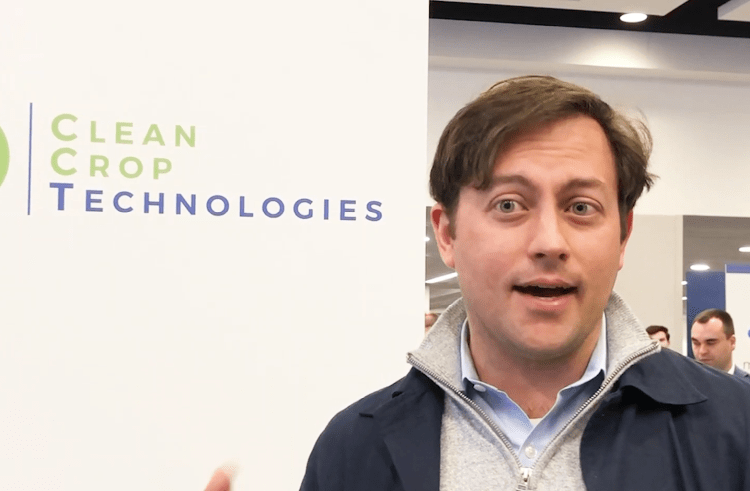“Every year, around 30% of food is lost to toxins, pathogens, and pests in between the farm gate and the end consumer.”
Dan White, cofounder and CEO of Massachusetts-based startup Clean Crop Technologies, was speaking with AFN on the sidelines of the Future Food Tech conference in San Francisco earlier this month.
“We solve this problem by using electricity to generate ionized gases to preferentially break down the microbes that drive most of this waste, without harming the quality [of the food] in the process,” he claimed. “We can treat crops post-harvest, or treat seeds.”
He added: “What we’re doing at Clean Crop is a form of cold plasma, which is basically just highly energetic gas that’s looking for things to break down. We have the ability to tune those gases so we’re preferentially breaking down stuff that is traditionally very hard to do, so things like Salmonella, Listeria, E. coli, and a wide range of mycotoxins.
“We can do that without harming the lipids or micronutrients or other things that customers care about.”
‘We’ve gone from academic papers to having several successful field pilots‘
Cofounded by White, Dr. Kevin Keener, and Daniel Cavanaugh in 2019, Clean Crop Technologies has raised $12 million to date and plans to “go back to the market [to raise more money] in early 2024,” said White.
“We’ve been around for three years, and in that time, we’ve gone from academic papers to having several successful field pilots. We now have active customers who are sending product to our facilities, and we have active pilots running right now with 39% of the global vegetable seed market and 46% of the nut market.”
He added: “We have a proprietary hardware stack that we can easily drop into a processing line whether it’s a seeding line for a greenhouse or a seed packing facility, or a nut processing line. We can match most line speeds that any customer needs and we charge them for every pound or ton of product.”
‘We target applications where we can achieve the same or similar decontamination as thermal pasteurization without harming quality’
Right now, claimed White, companies looking to pasteurize foods often have to make tradeoffs.
“With seeds, you can choose clean seeds with low germination because you had to hurt the germination in the process [of pasteurization] or you can have high germination but then have to deal with contaminants.
“With foods, there are the same tradeoffs, so you can pasteurize strawberries, but obviously strawberry jam after it’s been pasteurized is not of the same quality and doesn’t have the same profile. We target applications where we can achieve the same or similar decontamination as thermal pasteurization without harming quality.”





